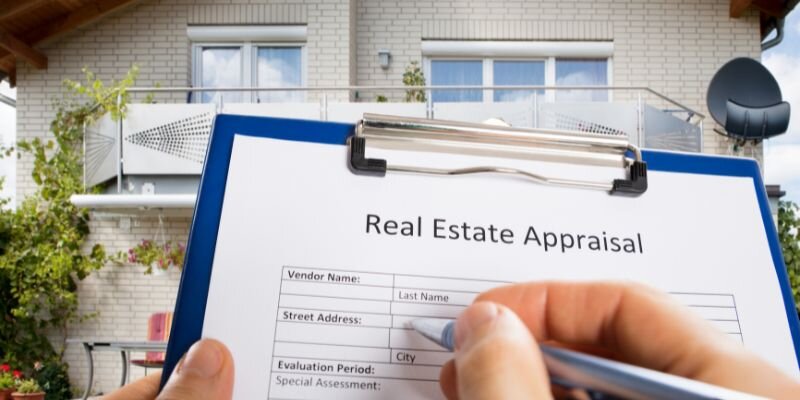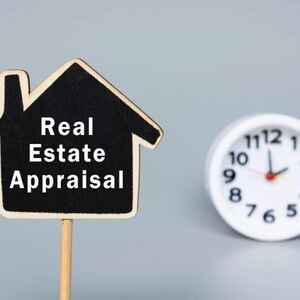
It can be hard to determine how to buy or sell a home in Florida, especially when you know how long it takes between an assessment and closing. If you understand this plan well, buying and selling in the Sunshine State. It will be easier. In this guide, you can learn how appraisals affect closing times and what to expect during the process. Understanding these timelines is essential for a smooth and quick transaction in Florida’s active real estate market, whether you’re a buyer eager to move into your dream home or a seller anxious to close the deal
Understanding the Appraisal Process in Florida

Navigating Florida’s appraisal process is crucial for buyers and sellers aiming for a smooth real estate transaction. This critical step in determining a property’s value significantly impacts the sale and closing timeline. Understanding what factors affect appraisal values and what sellers need to know is essential. Florida’s real estate market offers unique opportunities and challenges, and understanding potential delays and lender requirements can help avoid complications. To ensure your next move is well-received, let’s examine how appraisals directly affect purchasing and closing.
What Home Sellers Need to Know
The key to a successful property sale for Florida home sellers is having a thorough grasp of the appraisal process. Mortgage lenders rely heavily on property appraisals to determine how much a home is now worth. This helps them to limit their loan amounts to no more than the property is worth. The size, condition, and market value of the property in relation to similar properties in the neighborhood are some of the criteria that a certified appraiser considers during this procedure. Homeowners should know that an appraisal report might affect a buyer’s loan ability. Delays in negotiation delay the sale timeframe if the bid amount exceeds the appraised value.
The underwriters should not overshadow the lender’s role in commissioning and using the appraisal alongside other documents during the underwriting process. A thorough assessment will help sellers prepare their property appropriately, potentially averting undervaluation issues that could discourage buyers. To improve the appraisal outcome, sellers might consider enhancing the property’s maintenance and minor renovations, which could bring a favorable assessment.
It can take anywhere from one to two weeks from the time you request it until you receive the report. During this time, sellers should keep the lines of communication open with their buyers and real estate agents to ensure everyone knows what to expect. It is essential to understand that the timing of this process may be affected by how the real estate market works and the provider’s rules. By taking the initiative, buyers can quickly deal with any problems that might come up and keep the sale on track. It’s also essential to think about how the appraisal might impact FHA or VA loans, since these rules could change the terms and timeline of the deal.
Home sellers in Florida must be prepared, informed, and flexible to maximize their chances for a smooth appraisal process. Working with The Yellow Card Properties Team can help you navigate these challenges and streamline your home-selling experience.
Sellers can set realistic timelines and maintain momentum toward closing by engaging skilled appraisers and staying informed about the appraisal and the broader real estate transaction.
Factors That Affect Appraisal Value
The appraisal value of a property in Florida is influenced by several key factors, all of which are critical to both the appraisal process and the ultimate success of a real estate transaction. Understanding these variables helps homeowners set realistic expectations and can help them maximize their property’s value. Location is a prime determinant, with properties in desirable neighborhoods commanding higher values. Proximity to amenities like schools, parks, and shopping centers can positively affect the appraisal value, illustrating how local surroundings contribute to a property’s worth.
Another pivotal factor is the condition and age of the house. Appraisers meticulously assess the structural integrity, exterior, and interior conditions as part of the appraisal process. Modern, well-maintained homes are typically appraised higher than older properties suffering from neglect. Therefore, sellers should prioritize repairs and upgrades that enhance their house’s appeal to potential buyers. Similarly, appraisers compare the property to recent sales in the area. These comparable sales provide a benchmark for value, and significant discrepancies between the house and similar properties can affect the ultimate appraisal figure.
The size of the house, including the number of bedrooms and baths, is also significant. Homes that are bigger and have more features tend to sell for more money. Some improvements or features, like pools, solar panels, or energy-efficient changes, can also make a home more valuable. Even though these things might not always add up to the same amount in the evaluation, they can sometimes make a house seem more worthwhile.
Market conditions present during the appraisal can also affect this value. In a specific context, in a seller’s market, appraisals may reflect higher values because of competitive bidding. Conversely, values might stagnate or decrease in a buyer’s market due to less demand. Understanding these dynamics can help sellers adjust their strategies accordingly.
Evaluating someone is based on both numbers and how they are seen. By making the most of both the physical and intangible aspects of their properties, sellers can have a positive effect on the appraisal and ensure it closely matches their sale goals. Being aware of and ready for the risks of undervaluation can help move the closing process along more smoothly, ensuring that both buyers and sellers reach their real estate deal goals. Partnering with trusted cash home buyers in Florida can help streamline the sale and avoid delays caused by appraisal issues.
The Closing Timeline After an Appraisal

If Florida home sellers want a smooth real estate deal, they need to know how long it takes to close after an appraisal. Each step, from getting the loan approved to ensuring all the necessary paperwork is in order, is crucial to the close date. Key steps in the closing process can help you understand what’s going on, but it’s just as important to know how long each step takes to avoid delays. Sellers can work well with buyers and real estate agents to make sure everything goes smoothly from the appraisal to the close by planning for the timeline and taking care of any problems that might come up.
Key Steps in the Process
The process of closing on a house in Florida involves several key steps that are critical for ensuring a successful sale. Once the appraisal is complete and the property is firm, the borrower must move toward obtaining full loan approval. This step can include underwriting, where the lender assesses all the documents provided, such as income statements, employment verification, and the buyer’s credit. The underwriting phase is pivotal, confirming the ability to obtain the mortgage loan needed to complete the purchase. Any discrepancies discovered during this step could cause delays, so buyers and sellers must have accurate and comprehensive information ready.
After getting the loan approved, the next thing to do is sign the closing paperwork. The interest rate, monthly payment amounts, and specific closing expenses are all laid forth in this mortgage agreement paper. Giving clear information before finalizing the loan is crucial. To ensure that all parties have ample opportunity to examine and comprehend all terms and conditions, the closing disclosure is usually published three working days prior to the closing. This schedule is necessary to ensure that customers can make well-informed selections, as per Florida legislation. It is crucial to carefully analyze the closing disclosure to avoid any last-minute surprises, since any mistakes or misunderstandings could lead to substantial delays.
At the same time, all the required closing paperwork is being prepared and gathered. To ensure legal compliance in property transfer, it is vital to have these documents, which typically contain the deed, mortgage agreement, and agreements with other parties. To avoid any problems on closing day, home sellers should double-check that every paperwork is properly signed, witnessed, and notarized. Real estate attorneys and title companies work hand in hand to expedite transactions and avoid paperwork pitfalls. During the claims process, you can also get title insurance to safeguard your investment in the event of a disagreement or claim regarding the property’s ownership.
How Long Each Closing Step Takes
Each step within the closing timeline has expectations regarding how long it will take, which is crucial for maintaining momentum in the sales process. Once an appraisal is completed, buyers can expect to receive an appraisal report in up to two weeks. This period allows the appraiser to assess comparable properties, evaluate the current condition, and construct a thorough report. As the elements of an appraisal weigh heavily on the loan approval process, any delays here can have a cascading effect on subsequent steps.
The underwriting process, often viewed as the bottleneck in closing, usually extends one to two weeks after the loan application and all necessary documents are submitted. Lenders rigorously verify the buyer’s financials and sometimes request additional documentation, which can prolong this step. Sellers should be aware that the promptness with which buyers provide requested information can significantly influence this timeframe during underwriting. By preparing and gathering financial statements in advance, sellers can help expedite this period.
Following the receipt of the loan approval, the issuance of the closing disclosure marks an actionable point. By law, this must be provided to the buyer at least three business days before closing, a regulatory measure designed to prevent rushed decisions. This document confirms all final details of the loan agreement, and its issuance can affect the scheduling of the closing date accordingly. Sellers should maintain communication with their agents and buyers to ensure these timelines are adhered to, reducing the likelihood of last-minute delays.
Compiling and verifying closing documents, including the deed and title insurance, frequently requires at least a week. This period allows for checking all legal documentation to ensure compliance and accuracy. During this time, coordination with a closing agent or attorney is imperative to confirm everything is in order and minimize potential complications.
With any problems found during the final walkthrough resolved, the closing date is usually set near the completion of all these phases. To make sure everything has been taken care of according to the original agreements, this part can take up to a week. The closing date could be delayed if unexpected situations require more negotiation or modifications. Florida sellers may better plan and anticipate their timelines if they know how long each closing stage will take. This helps to ensure that everyone is on the same page and ready to close the deal successfully.
To ensure each step is as seamless as possible, consider the following strategies tailored to assist sellers:
Organize all necessary documentation early, such as title deeds, insurance papers, and previous inspection reports, to avoid any last-minute hiccups.
– Engage a reliable real estate attorney specializing in home sales to review contracts and resolve legal queries swiftly.
– Set a realistic pricing strategy with a seasoned real estate agent to attract serious buyers and minimize drawn-out negotiations.
– Proactively schedule a pre-listing home inspection to identify and address potential issues that could delay the sale process.
– – To ensure everyone is in agreement and informed, maintain open and regular communication with all parties involved, including the buyer’s representative and mortgage lenders.- Clearly define a timeline for each stage of the closing process and share it with stakeholders to keep the transaction on track.
– Employ digital platforms for signatures and document sharing to expedite procedures and reduce delays due to geographical constraints.
These actionable tips help sellers achieve a smoother, more efficient closing experience. By implementing them, you’ll set yourself up for a successful transaction with minimal stress.
What Happens When an Appraisal Expires?
Florida homeowners selling their homes must be aware of the consequences of an appraisal’s expiration date. There may be delays or the need for a new appraisal if the buyer’s loan is affected by an expired appraisal, which can hinder the closing process. Understanding issues like expired appraisals and questions such as can a buyer back out after inspection in Florida can help sellers anticipate potential hurdles and plan accordingly. Here we’ll look at what this means for sellers and how to deal with expired appraisals properly.
Implications for Sellers
When an appraisal expires, it may present several challenges for home sellers in Florida’s dynamic real estate market. An expired appraisal, often due to time or a change in market conditions, indicates that the appraisal report is no longer valid in determining the property’s set value. Due to this invalidation, the sellers may have to renegotiate terms with potential buyers or experience delays in the closing process. The impact on loan approval is also significant, as lenders typically require an appraisal to be valid before moving forward with underwriting. The lender cannot confirm the property’s potential interruptions in the buyer’s financing acquisition without a valid appraisal.
Moreover, the implications of an expired appraisal extend to sellers; it might affect their ability to attract and retain buyers. As the closing timeline is crucial for sellers aiming to coordinate subsequent moves or financial plans, an expired appraisal might lead to lost time, increased carrying costs for utilities, taxes, and insurance, and even potentially losing the buyer altogether. Given the competitive nature of the Florida real estate market, an expired appraisal could also necessitate re-evaluating the asking price to align with any shifts in market dynamics or comparable sales in the area.
Sellers need to take the initiative to manage the assessment timetable in light of these considerations. To keep their appraisal from expiring, homeowners should stay in touch with their real estate agent and familiarize themselves with the lender’s requirements. Sellers should try to coordinate the timing of the appraisal with other closing procedures to keep the transaction timetable as smooth as possible. By keeping the ball rolling towards a sale and a consistent level of interest from buyers, proactive management helps sellers. Sellers can make strategic decisions that affect the closing timeline and outcome by understanding the essential features of appraisal validity and the probable ramifications of an expired assessment.
How to Handle Expired Appraisals
Taking care of expired appraisals requires sellers to plan ahead and move quickly if they want to avoid delays in the real estate transaction process. In Florida’s housing market, which moves quickly, it’s important to know how to deal with expired evaluations. Knowing that the validity of an appraisal usually lasts between three and six months, buyers should start by keeping a close eye on this time frame and be ready to act quickly if it expires before closing. When an appraisal has ended, it is common to ask for a revaluation, which means having an appraiser come back to the property and do a new assessment. This step may add to the costs of the transaction, but it is important to make sure everything goes smoothly.
Sellers can mitigate the effects of expired appraisals by planning, even before listing the property. For example, you can choose to sell your Georgia house fast for cash to avoid delays tied to financing and expired appraisals.Engaging a seasoned real estate agent familiar with Florida’s market can provide valuable foresight into potential timeline issues and help prepare sellers for quick adjustments. Keeping the property pristine for potential new appraisal visits is crucial, as enhancements or necessary repairs can positively influence the appraisal outcome and prevent future validity concerns. Moreover, staying informed about local market trends and keeping abreast of shifts in property values is essential to setting realistic reappraisal expectations.
When dealing with an expired appraisal, it is crucial to keep the lines of communication open with the buyer and lender. Being open and honest about the current status and possible dates for obtaining a new appraisal is essential for effectively resolving this situation. Keeping in touch with financial institutions can be beneficial since, depending on the scenario, they may give extensions or forgo the need for a new evaluation. The seller may be assured that any discussions about price modifications or contract terms will be grounded in accurate and up-to-date appraisal data thanks to this proactive communication strategy, which fosters confidence among all parties involved.
Concluding the appraisal process effectively hinges on acknowledging that expired appraisals are not an insurmountable obstacle but rather an affirmation of one’s stature. NB By preparing for potential reappraisals and addressing expired appraisal issues promptly, sellers fortify their position in the closing process. Consequently, adequately handling expired appraisals facilitates a seamless path to closing and reinforces sellers ‘ adaptability in the real estate journey, ensuring that buyers and sellers achieve a successful transaction despite unforeseen valuation hurdles.
Decoding the Closing Disclosure and Final Loan Approval

Home sellers in Florida might greatly benefit from familiarizing themselves with the closing disclosure and final loan approval and their respective roles in the real estate transaction process. Sellers and lenders alike play critical roles in these documents, which are essential for a smooth appraisal to closure process. In order to avoid any sale delays and make sure the closing goes smoothly, sellers need to understand the importance of these documents. Learn all about the ways that a thorough review of these documents may make selling real estate easier, more confident, and more enjoyable.
Why These Documents Matter for Sellers
For sellers, the closing disclosure and the final loan approval are two of the most important documents that must be present at the closing. In order to guarantee a smooth transition during the closing, these documents are more than just a formality. At least three working days prior to the closing date, the buyer will receive the closing disclosure, a detailed document. Closing costs, interest rates, monthly payments, and all other loan terms are laid forth in this document. As a last step, this ensures that the seller’s financial obligations are in line with the promises made throughout the transaction. It is crucial for sellers to carefully review the contents of this paper to avoid any confusion or delays caused by inaccuracies.
Because the final loan approval is so complicated, you can’t stress how important it is. The final loan acceptance means that the lender will fund the buyer’s mortgage. This makes the financial foundations of the real estate deal stronger. This permission is very important because it means the lender has finished the tough underwriting process. Sellers should know that any problems that aren’t fixed during the underwriting process, like missing or incorrect documents, can stop this approval and cause the close to be delayed.
The role of the seller during this stage is multifaceted. Sellers must ensure all required documents are correctly prepared, signed, and transmitted to the relevant parties. This includes collaborating with the title company to verify the transfer of ownership and the absence of legal encumbrances. The title is a cornerstone in conveying legal ownership from buyer to seller, making diligence during its preparation imperative. Missteps in the title or closing documents could result in delays and legal disputes, reinforcing the need for sellers to work closely with experienced professionals who can guide them through this pivotal aspect of the process.
The seller’s approach is critical in mitigating delays and ensuring a seamless closing experience. Open communication between sellers, lenders, and buyers can help preempt any issues arising from the closing disclosure or final loan approval. Sellers should be prepared to address any last-minute changes, maintaining flexibility to negotiate any points of contention. By understanding the weight and detail involved in these documents, sellers enhance their readiness to close a sale efficiently and effectively. Ultimately, these efforts translate into a smoother transaction that retains the confidence of all parties involved, leading to a successful real estate closing in Florida. To see how Yellow Card Properties works, check out our step-by-step process for buying homes directly from sellers.
Understanding Florida’s appraisal and closing timeline is crucial for a smooth real estate transaction. Typically, post-appraisal processes may take a few days to several weeks, depending on various factors, including lender efficiency and document readiness. You can quicken the pace and mitigate potential delays by staying proactive and communicating effectively with your real estate agent and lenders. For sellers, choosing a knowledgeable real estate professional can be a game-changer in navigating these timelines efficiently and ensuring a hassle-free path to closing. Consider downloading our comprehensive guide to accelerate your home-selling journey in Florida.
Helpful Florida Blogs
- Tips For Selling Your Florida Home During A Move
- Selling Your Old House In Florida’s Real Estate Market
- Sell Your Florida Home With An Existing Mortgage
- Selling a House That Needs Repairs in Florida
- Financial Impact Of Selling Your Florida Home As-is
- Sell Your Florida Home While Owing Back Payments
- Smart Strategies To Minimize Closing Costs In Florida
- Understanding Florida Inheritance Laws For Real Estate And Property Owners
- Mastering Home Sale Contingencies In Florida
- Can Heir Property Be Sold in Florida?
- How Long After an Appraisal Can You Close in Florida
- Can a Buyer Back Out After Inspection in Florida
- Selling a House in Bad Condition in Florida

